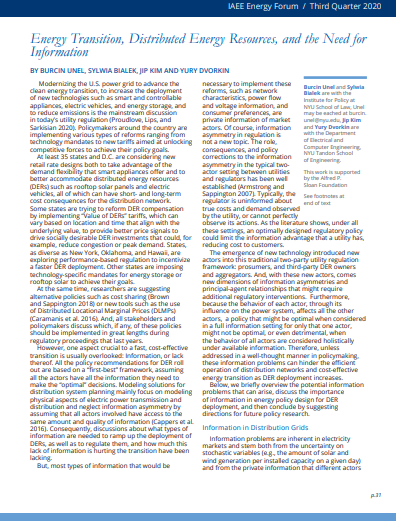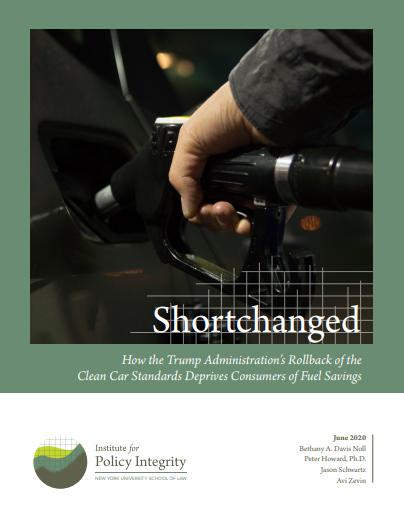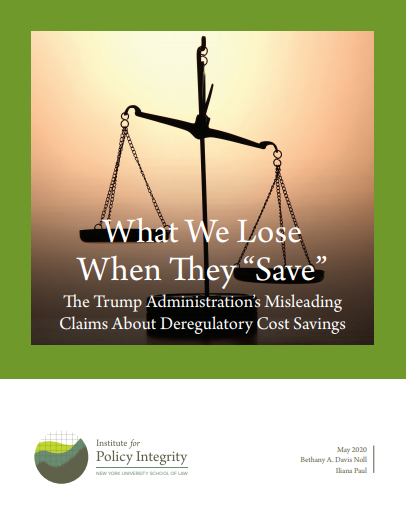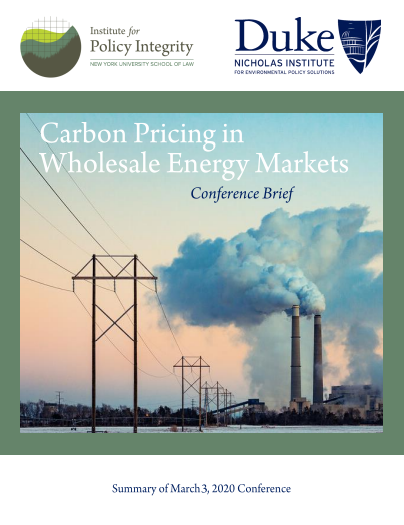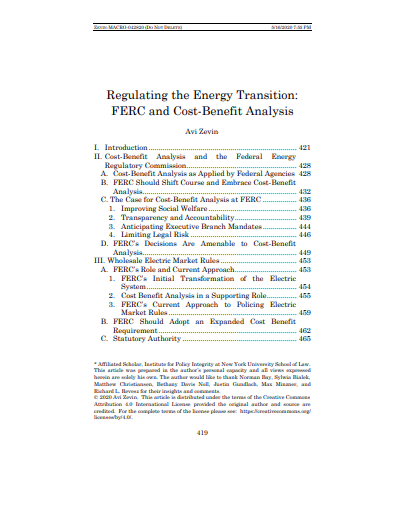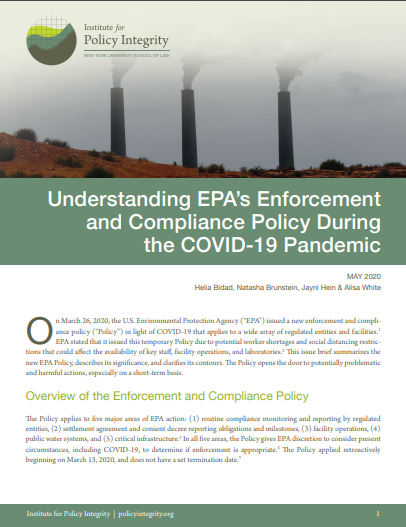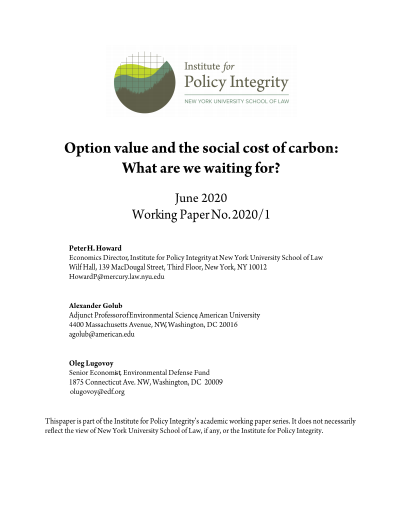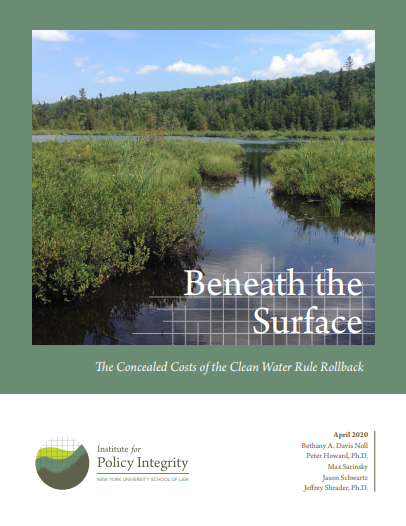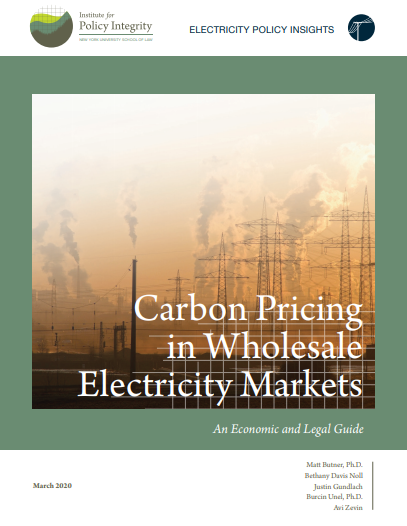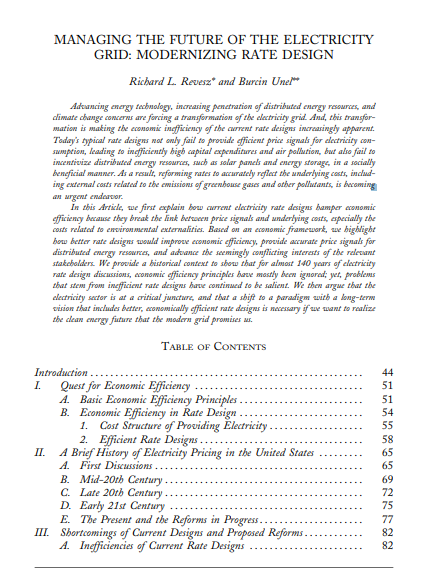-
Energy Transition, Distributed Energy Resources, and the Need for Information
Modernizing the U.S. power grid to advance the clean energy transition, to increase the deployment of new technologies such as smart and controllable appliances, electric vehicles, and energy storage, and to reduce emissions is the mainstream discussion in today’s utility regulation. Policymakers around the country are implementing various types of reforms ranging from technology mandates to new tariffs aimed at unlocking competitive forces to achieve their policy goals. We briefly overview the potential information problems that can arise, discuss the importance of information in energy policy design for DER deployment, and then conclude by suggesting directions for future policy research.
-
Shortchanged: How the Trump Administration’s Rollback of the Clean Car Standards Deprives Consumers of Fuel Savings
The Trump administration recently replaced the Obama administration’s strongest climate policy, the Clean Car Standards, with a significantly weaker rule. We explain how EPA and NHTSA, to justify the rollback, rely on an analytical gimmick that contravenes decades of agency practice across administrations as well as the principles of basic economics.
-
What We Lose When They “Save”
The Administration’s Misleading Claims About Deregulatory Cost Savings
The Trump administration regularly boasts about the cost savings of rolling back regulations, focusing on industry profits without considering significant negative impacts. This policy brief address and counters the administration's cost savings claims and demonstrates that they should not be taken at face value.
-
Carbon Pricing in Wholesale Energy Markets
Conference Brief
Policy Integrity and the Nicholas Institute for Environmental Policy Solutions at Duke University convened a conference on March 3, 2020, to discuss current, and potential future, approaches to carbon pricing in wholesale markets. This brief highlights some of the major points of discussion and suggests open questions for future study.
-
Regulating the Energy Transition
FERC and Cost-Benefit Analysis
This article, published in the Columbia Journal of Environmental Law, argues that, FERC’s management of this transition would be significantly enhanced if it embraced cost-benefit analysis—including accounting for important indirect costs and benefits such as the effect on climate change—to guide its decisionmaking. Changing course and adopting cost-benefit analysis will allow FERC to manage the energy transition while maximizing social welfare, enhancing transparency and accountability, and mitigating legal and political risk
-
Understanding EPA’s Enforcement and Compliance Policy During the COVID-19 Pandemic
This issue brief summarizes EPA's enforcement and compliance policy in light of COVID-19, describing its significance and clarifying its contours. The policy opens the door to potentially problematic and harmful actions, especially on a short-term basis.
-
Option Value and the Social Cost of Carbon
What Are We Waiting For?
Scientists and economists have long recognized that significant uncertainties and irreversibility characterize climate change. And yet, the social cost of carbon (SCC), the preeminent policy tool to address climate change applied by the U.S. government, does not include the option value (OV) that arises due to these characteristics. We demonstrate a simple methodology for approximating the OV underlying the SCC using the Bachelier formula
-
Beneath the Surface
The Concealed Costs of the Clean Water Rule Rollback
In restricting the scope of the Clean Water Act through two regulatory rollbacks, the Environmental Protection Agency and Army Corps of Engineers claim that the estimated compliance-cost savings exceed the environmental harms (in the form of forgone benefits). Yet these analyses suffer from severe methodological flaws. And correcting the analyses would very likely show that the rollbacks are net costly to society, depriving the public of potentially billions of dollars in annual forgone benefits. As detailed in this report, the agencies’ failure to meaningfully assess the substantial harms that will result from their rollbacks violates both regulatory precedent and the agencies’ legal obligations.
-
Carbon Pricing in Wholesale Electricity Markets
An Economic and Legal Guide
This report explains how carbon-pricing rules in organized wholesale electricity markets can improve economic efficiency. It then explores the economic principles and legal requirements for RTOs, states, and the Federal Energy Regulatory Commission to consider when implementing a carbon-pricing rule in organized wholesale electricity markets. And it identifies several policy-design approaches that, to varying degrees, meet those economic principles and are likely to be found legally permissible.
-
Managing the Future of the Electricity Grid: Modernizing Rate Design
This article, published in the Harvard Environmental Law Review, argues that the electricity sector is at a critical juncture, and that a shift to a paradigm with a long-term vision that includes better, economically efficient rate designs is necessary if we want to realize the clean energy future that the modern grid promises us.
Viewing recent projects in Publications

